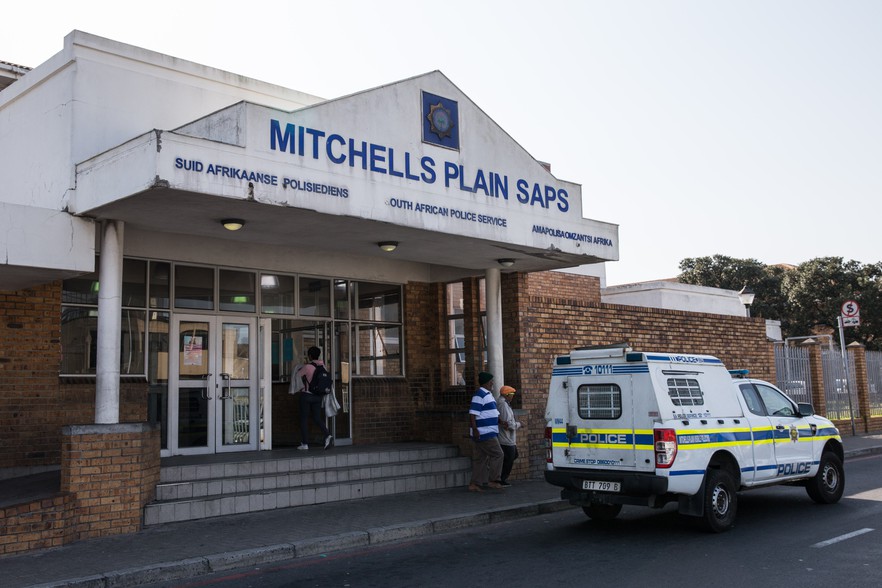Key takeaways: IPID’s cover-up of police brutality
There were over 42,000 criminal complaints against the police from April 2012 to March 2019, and only 531 successful prosecutions

For years, whistle-blowers inside South Africa’s cop watchdog have alleged that investigations into police criminality were rushed through in a bid to inflate performance statistics. Behind these statistics are “victims of assaults, murder and torture who are deprived of justice” wrote one whistle-blower to Public Protector Thuli Madonsela in 2016.
Viewfinder’s first exposé, published in partnership with the Daily Maverick and GroundUp, unpacks whistle-blower reports and combines these with public records, data analysis, insights from IPID insiders and the experiences of victims to show how and why police officers get away with violent crimes in South Africa.
Key takeaways
-
South Africa’s police watchdog is called the Independent Police Investigative Directorate (IPID).
-
IPID registered more than 42,000 criminal complaints against the police between April 2012 and March 2019. These included allegations of rape, assault, torture, killings and shootings.
-
Only 531 IPID cases resulted in successful criminal prosecutions during that same period.
-
Investigations are registered and conducted at one of IPID’s nine provincial offices.
-
IPID has historically been under-resourced and undermined. It does not have the budget needed to handle a massive case load. Provincial investigators must travel vast distances to attend crime scenes. According to IPID insiders, police members accused of crimes sabotage IPID investigations, and prosecutors rarely take IPID cases up in court.
-
Also, during the period of state capture, IPID’s director Robert McBride was suspended. Many believe that this was because he was tackling high-level corruption in the police.
-
In spite of these challenges, IPID has performance targets which are based on the number of quality investigations the institution “completes” in a year.
-
Completion statistics are published in IPID’s annual reports. IPID management present these reports to Parliament’s Police Portfolio Committee annually in October. This is where IPID’s performance is assessed.
-
Whistle-blowers allege that the need to generate good performance statistics results in short-cuts being taken to prematurely “complete” and “close” investigations.
Viewfinder published the whistle-blower reports. They are available for anyone to view or download:
-
A 2012 confirmation of a whistle-blower report received by Public Protector Thuli Madonsela.
-
Three internal IPID reports on site visits to its Gauteng, Northern Cape and Kwa-Zulu Natal provincial offices in 2014.
-
Confirmation of a Mpumalanga whistleblower report from 2014.
-
Two 2016 memos to Madonsela requesting (again) that she investigate.
-
A 2016 disclosure and signed affidavit by a KwaZulu-Natal investigator.
-
A 2016 report on “fraudulent” closures from the Gauteng IPID office.
-
Former IPID boss Robert McBride’s statement to the Zondo Commission of Inquiry in February 2019.
IPID’s position
McBride’s Zondo Commission allegations were confined to the 18 months of his suspension. Viewfinder interviewed IPID head of investigations Matthews Sesoko, in his official capacity. Sesoko acknowledged that “statistical information was inflated” during the 2015/16 financial year. For context, both Sesoko and McBride were on suspension during that period.
In late 2016, IPID assigned its integrity strengthening unit to investigate. This investigation is still incomplete. It does not look at allegations pre-dating McBride’s suspension.
IPID has since backtracked on Sesoko’s position, saying that “no evidence of stats manipulation during the 2015/2016 financial year has been presented to Management. Management is therefore not in agreement with this allegation until evidence is provided.”
IPID added that the allegations from 2014 and 2016 were “untested and unproven”.
Support independent journalism
Donate using Payfast

Next: One in seven plants and animals in SA threatened with extinction, new report shows
Previous: Viewfinder: IPID’s cover-up of police brutality in SA
© 2019 GroundUp.
This article is licensed under a Creative Commons Attribution-NoDerivatives 4.0 International License.
You may republish this article, so long as you credit the authors and GroundUp, and do not change the text. Please include a link back to the original article.
